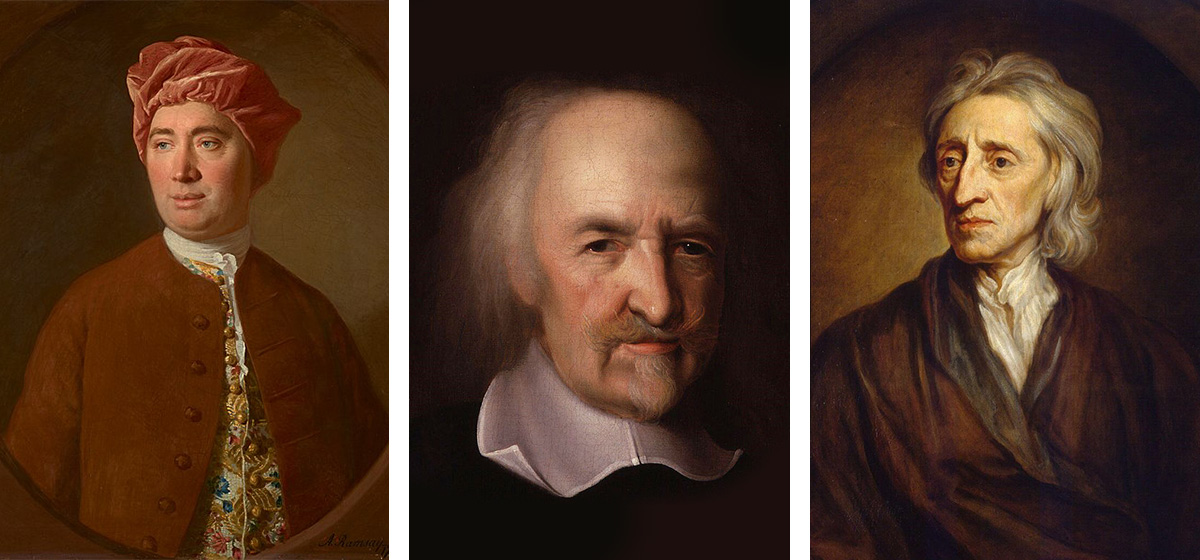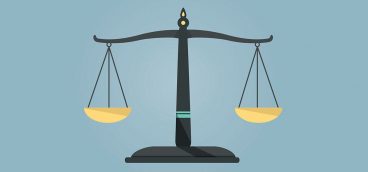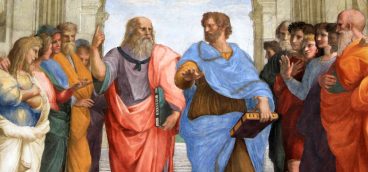The Practical View

“In the beginning all the world was America.” —John Locke
The most important thing to understand about the Age of Enlightenment is that it contained both a practical cast of thought and a utopian cast of thought.
The practical strain is associated mainly with Anglo-Saxon thinkers such as Hobbes, Locke, Hume, Mill and others. The utopian strain is most closely associated with Continentals such as Jean-Jacques Rousseau and, later, Karl Marx.
As noted last week, these philosophers began by trying to imagine what human life was like in a “state of nature,” that is, before societies and governments were formed. The writers had in mind what we would now call small bands of roving hunter-gatherers.
This inquiry was no small matter, considering that virtually the entire existence of homo sapiens had taken the form of hunting and gathering. Settled agriculture and large organized societies only began to appear about 10,000 years ago, some 390,000 years after the species arose.
From the Anglo-Saxon point of view, a human being in a state of nature was a miserable creature. Cut off from any larger society, they were constantly at war with neighboring bands, their lives filled with danger, violence and disease. As Hobbes memorably put it, people in a state of nature lived lives that were “solitary, poor, nasty, brutish, and short.”
When homo sapiens finally began to settle into communities and to organize primitive governments, the quality of human life improved dramatically. After all, according to Hobbes, Locke, et al., the first duty of a legitimate government is to protect its people. Late medieval societies were far more violent than modern societies, to be sure, but they were far, far less violent than hunter-gatherer societies.
But ensuring the safety of its citizens was just the first duty of a government. Most of the autocratic sovereigns of Hobbes’ day met this first duty. But those governments were still illegitimate because, according to the philosophers, they violated the “social contract” between the government and the governed.
The social contract, originally proposed in Plato’s “Republic” (Book II), referred to the (mostly unspoken) agreement pursuant to which people gave governments a monopoly on violence in return for the governments’ assuming certain duties.
Foremost among these duties was a government’s commitment to protect its citizens by enforcing the law and countering internal and external threats to the people. But, for the government to be legitimate, it also had to preserve certain fundamental liberties.
Those fundamental liberties are the ones that were ultimately vouchsafed to Americans in the U.S. Constitution: free speech, freedom from oppression, sanctity of contracts, and so on.
But, ultimately, this presented the political theorists with a conundrum that goes something like this:
Human beings joined together in societies for protection and because their lives were much improved. But in order for the governments of those societies to preserve order, those governments had to have a monopoly on violence.
But long experience had shown that any government possessing such a monopoly would be certain to abuse its power, oppressing its people. Therefore, a legitimate government must also respect certain fundamental liberties of its citizens.
But what was to prevent a government with a monopoly on violence from ignoring these rights? Nothing.
Therefore, such a government was illegitimate and its people could morally revolt against it—indeed, according to Locke, people would have a moral duty to revolt.
Rather than finding themselves advocating a system that was certain to lead to periodic revolts, Hobbes, Locke, et al. concluded that, in the practical world that people actually inhabited, the only legitimate government had to be a government of the people, i.e., a democracy. And a democracy designed to protect the fundamental liberties described above is a liberal democracy.
More than 300 years later (dating from Locke’s death in 1704), the kind of legitimate government Hobbes, Locke, et al. advocated still persists, especially in the Western world but also in Japan and a few other places. It has persisted for many reasons, but two of the most important are these:
- In a liberal democracy there is rarely, if ever, a moral justification for people to revolt. If they don’t like the government they can simply elect a new one. Therefore, a well-constructed liberal democracy should persist almost indefinitely.
- In addition to both empowering the government (a monopoly on violence) and constraining it (preserving fundamental liberties), a liberal democracy accomplishes something else that is crucially important: it allows a healthy tension to play out over time between the two most fundamental human rights: liberty and equality.
This tension essentially defines the American form of government. It was embedded very early in the Declaration of Independence: “We hold these truths to be self-evident, that all men are created equal [equality], that they are endowed by their Creator with certain unalienable rights [liberty]…”
The U.S. Constitution embraces a similar tension. The Preamble states that, among the two purposes of the Constitution (the other being “to form a more perfect union,” the earlier Articles of Confederation having proven to be thoroughly imperfect) is “to secure the blessings of liberty.”
The first few amendments are all about freedoms (freedom of speech, press, assembly, and so on), while other amendments (13 through 26) are all about equality.
If Messrs. Hobbes, Hume, Locke, and Mill had lived to see the Declaration and the Constitution, they would have recognized their fingerprints all over both documents. The Americans had, following the ideas laid down during the Age of Enlightenment, created a powerful central government with a monopoly on violence. They had ensured that the government was answerable to the people. They had constrained that government’s ability to interfere with its citizens’ core rights. Finally, they had recognized that both freedom and equality were fundamental human rights that must be preserved at all costs.
In short, the practical, Anglo-Saxon understanding of the role of governments and the nature of human beings proved to be a resounding and persisting success. Next week, however, we’ll contrast the utopian, Continental version of these ideas.






